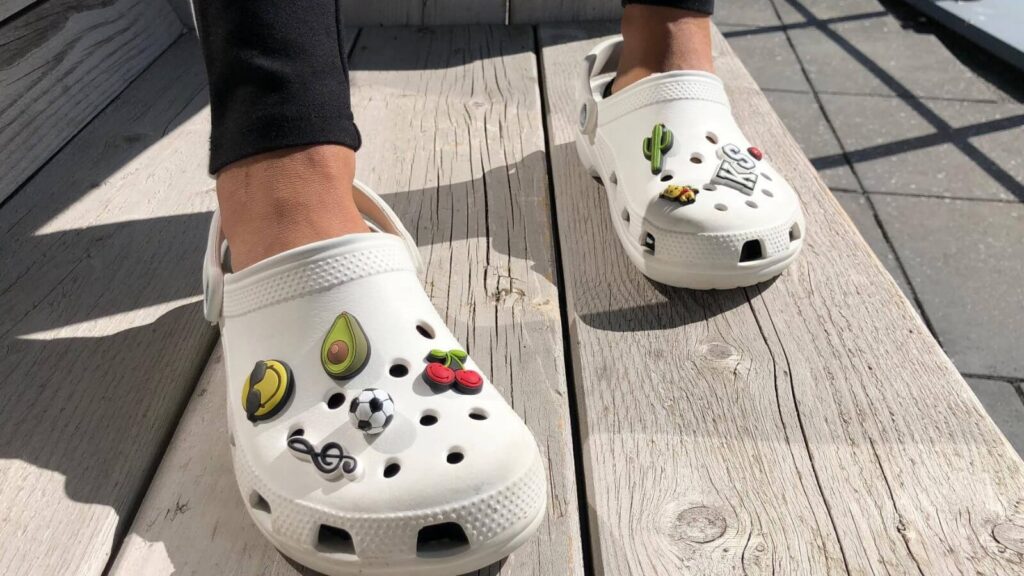Crocs has announced it will ditch leather and become completely vegan by the end of the year. It’s part of the footwear brand’s goal of becoming net zero by 2030.
The company’s popular Classic Clog already has a relatively low carbon footprint, at 3.94kg CO2 emissions per pair. In contrast, a pair of running shoes generates around 13.6kg of CO2 emissions, according to research from 2013.
To cut its carbon footprint further, Crocs will no longer use leather in some of its designs. Leather is becoming increasingly unpopular due to its impact on the planet. This is due to the amount of landed needed to raise livestock, and the emissions linked to the industry.
Crocs will also update its animal-free Croslite material to be more sustainable, though it didn’t specify how. It will also continue its search for more sustainable packaging. Last year, 85 percent of all Crocs shoes were sold without boxes.
Moreover, Crocs is exploring ways to open up consumer-led donations, as well as re-commerce programs and recycling. Currently, 45 percent of all Croslite material production scrap is recycled.
‘The right thing to do’
Crocs said it would transition to renewably sourced energy in its offices and distribution centers. In instances where that isn’t possible, the company will purchase carbon credits. A carbon credit is, in essence, a permit that ‘allows’ a company to emit one tonne of carbon dioxide, or the same amount of another greenhouse gas.
An organization can purchase carbon credits from a landowner, whose land will store the greenhouse gases that are being emitted.
“Taking action to reduce our environmental footprint by implementing more sustainable practices across our entire business is the right thing to do for Crocs,” said Crocs CEO Andrew Rees.
“As a company, we are deeply committed to accountability and we’re confident that we have the right team, the right innovations and the right partners to help us achieve our net zero ambitions by 2030.”
Since 2020, Crocs has donated nearly 1 million shoes to healthcare workers.






